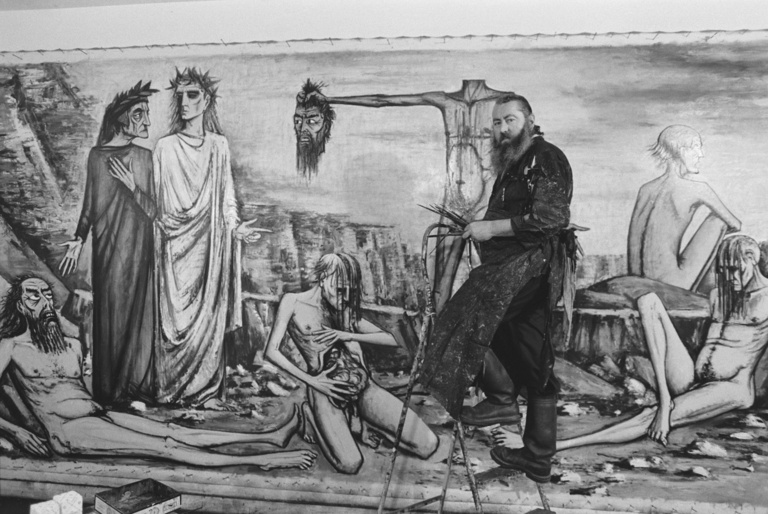Bernard Buffet
was born on 10 July 1928 in Paris.
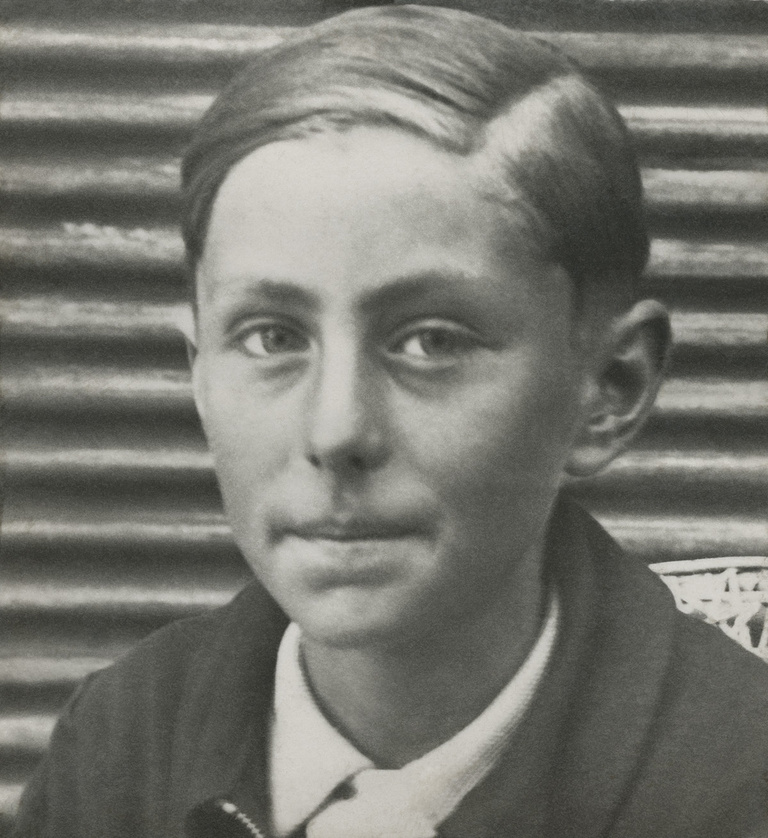
He spent his childhood in Paris, in the Batignolles district.
1940s
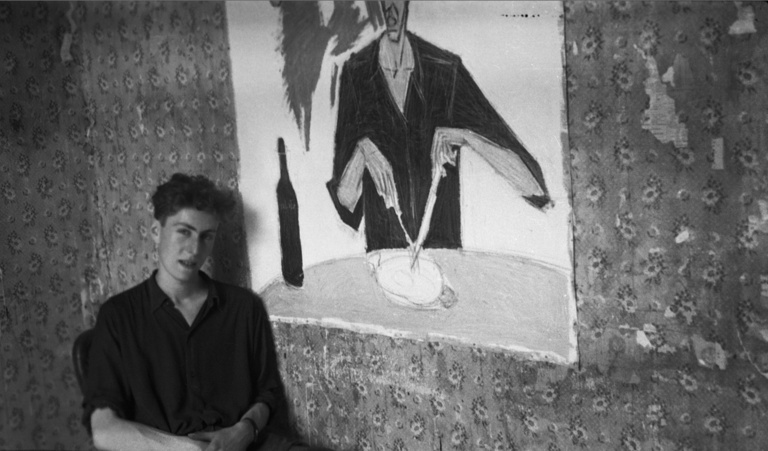
In 1943, Bernard Buffet was admitted to the École Nationale Supérieure des Beaux-Arts in Paris.
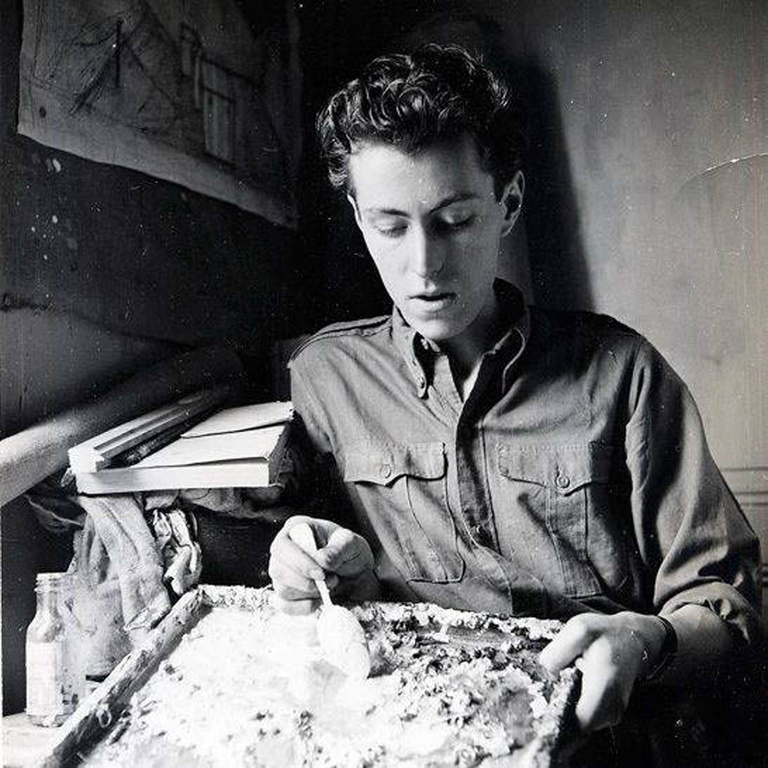
Bernard Buffet quickly emerged as a young prodigy of figurative painting. In 1943, he was admitted to the École Nationale Supérieure des Beaux-Arts in Paris. He swiftly developed a distinctive style, characterised by angular lines, dark tones and poignant themes, such as minimalist still lifes, desolate landscapes and solitary figures. His work resonated particularly with a population scarred by the hardships of the Second World War.
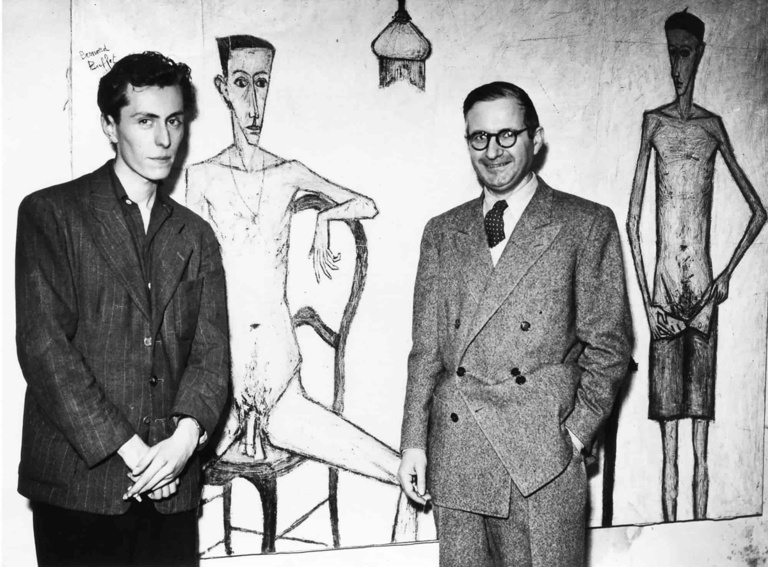
Exhibitions of his works in various post-war salons attracted the attention of critics and collectors. In 1948, Bernard Buffet signed an exclusive contract with the Galerie Drouant-David and was awarded the Critics' Prize, catapulting him to the status of Pablo Picasso's successor in the eyes of the public. At just twenty years old, Bernard Buffet experienced a meteoric rise to fame.
1950s

Bernard Buffet became an iconic figure of the 1950s.
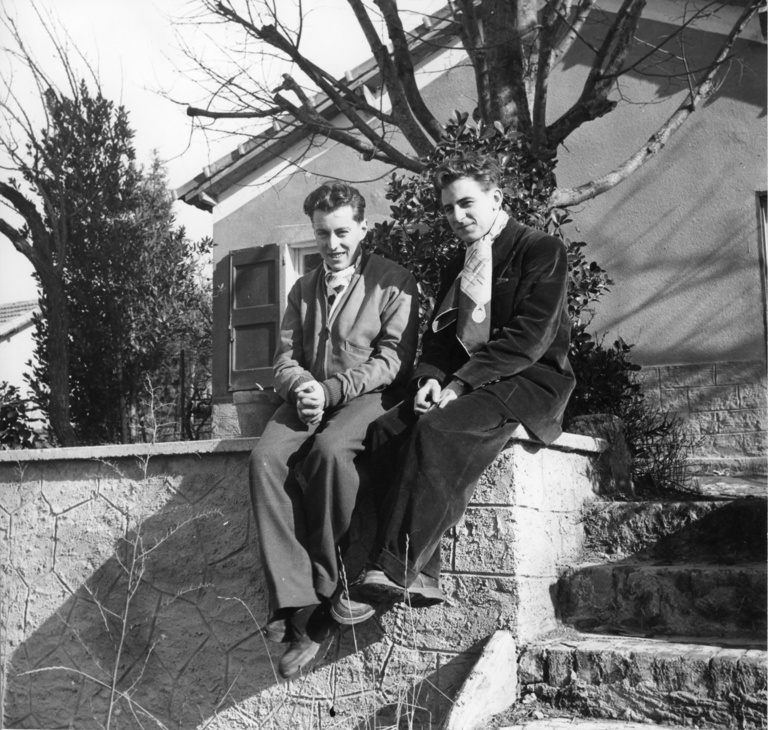
In 1950, Bernard Buffet began a romantic relationship with Pierre Bergé. Their relationship continued until 1958.
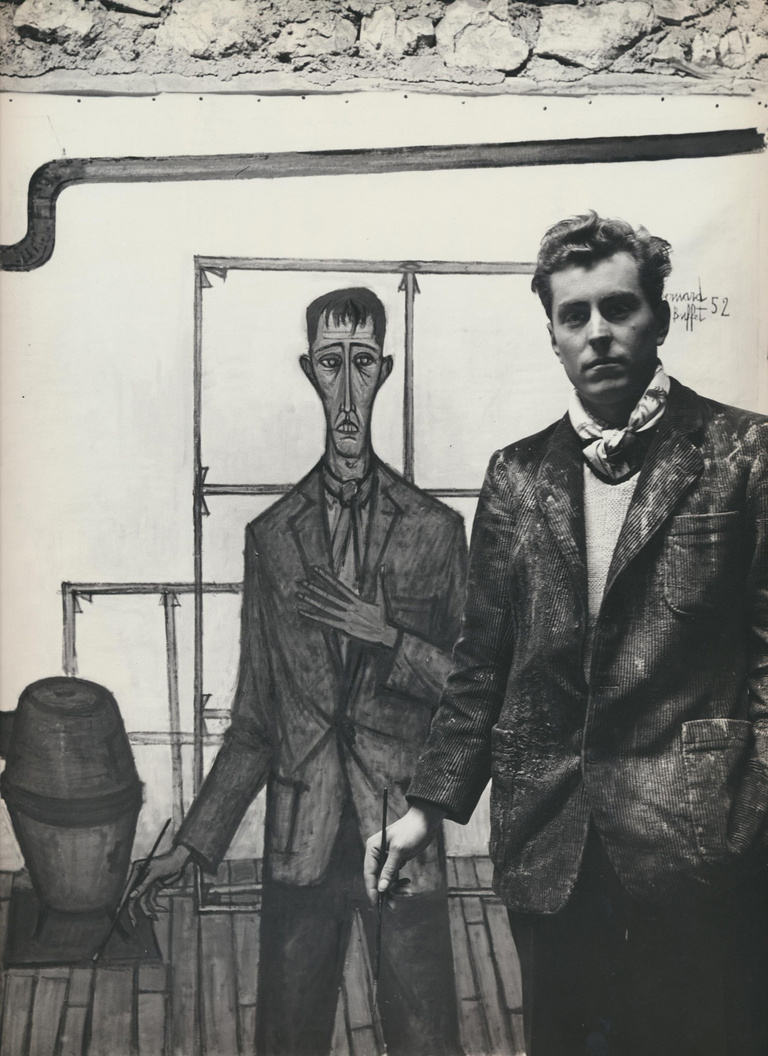
During this period, Bernard Buffet established a work routine that would last throughout his career. Each year, he devoted himself to a major artistic theme. Alongside these annual themes, he also painted smaller works featuring a variety of subjects.
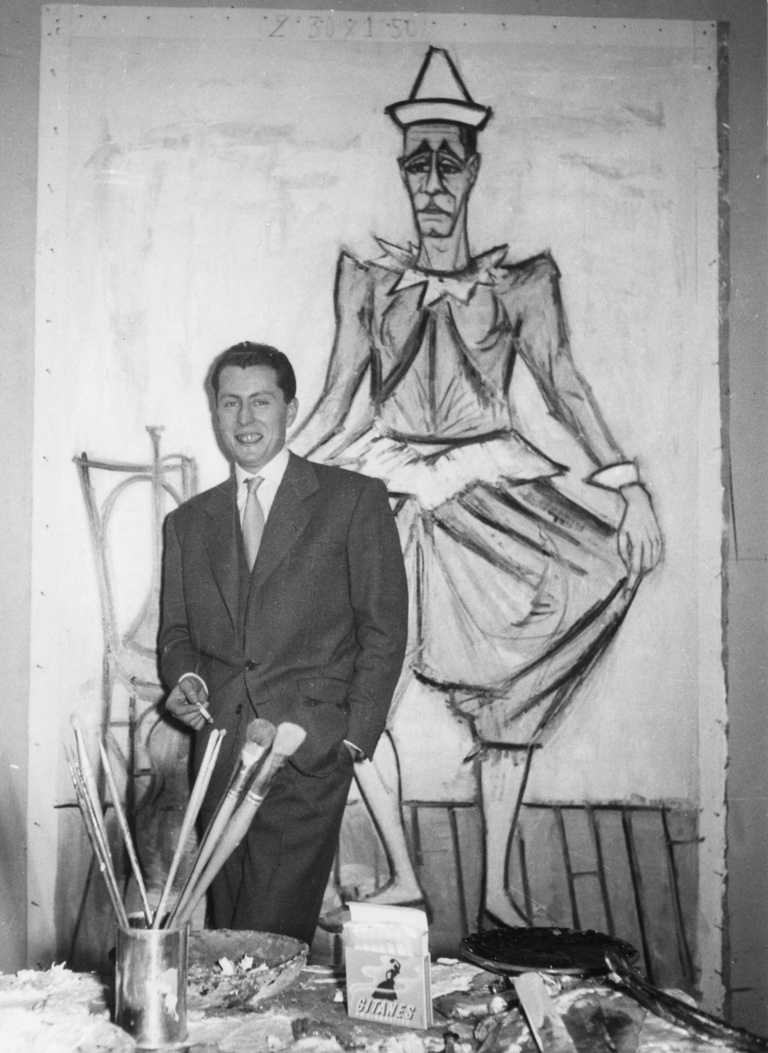
In 1954, Bernard Buffet won first place in a poll organised by the magazine Connaissance des Arts, which named the ten best post-war painters.
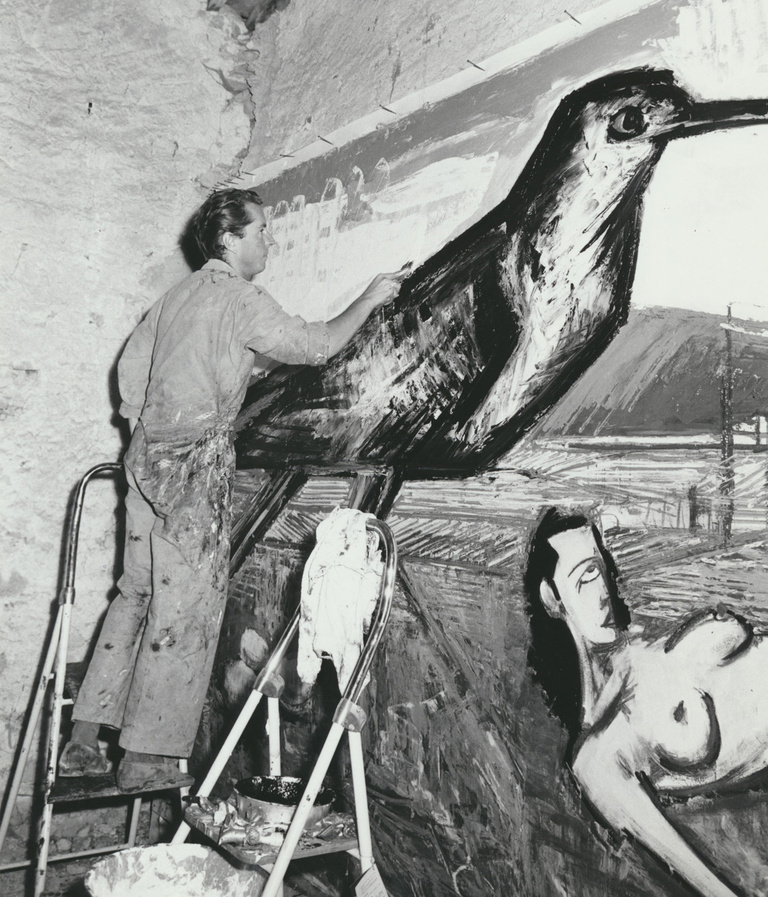
While continuing to paint, the young artist was sought after for advertising campaigns and illustrations, as well as for designing sets and costumes for theatre and opera. Some of his works were shown worldwide and even appeared in iconic films such as How to Marry a Millionaire, starring Marilyn Monroe and Lauren Bacall.
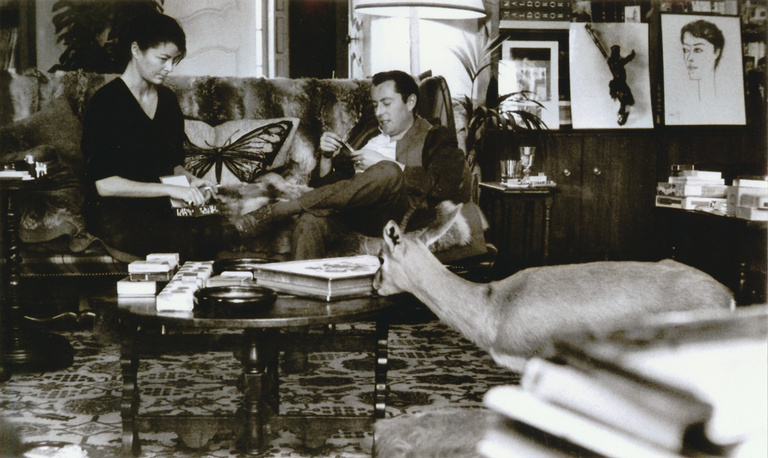
In 1958, Bernard Buffet met the singer and writer Annabel Schwob. They married in December of the same year and would remain together for more than forty years.
1960s
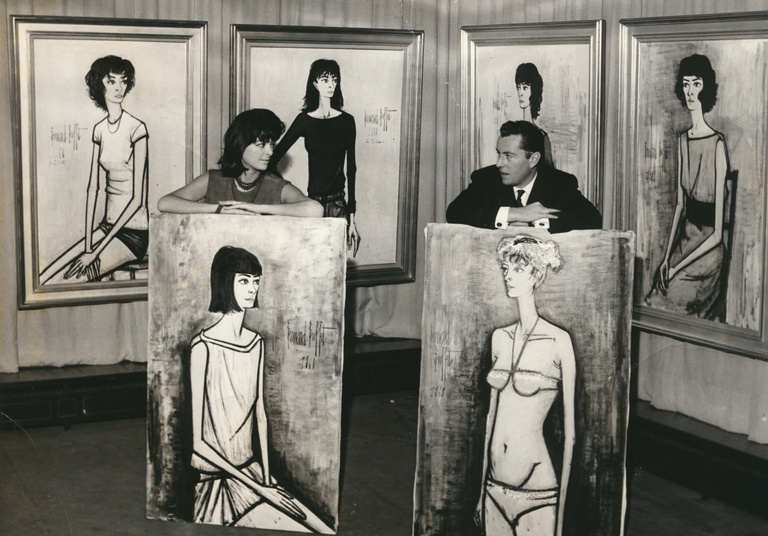
Bernard Buffet continued to enjoy considerable success in France and internationally, attracting an ever-growing audience.
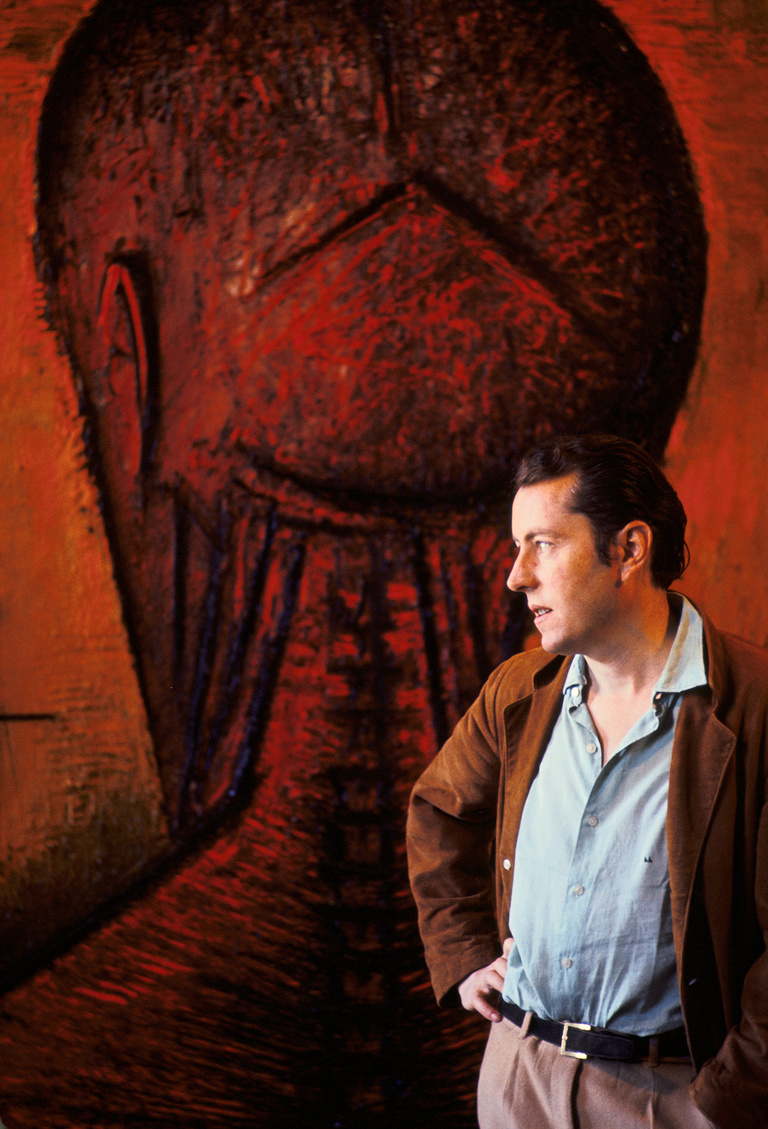
He demonstrated his skill in playing with variations of colour and texture, as evidenced by the themes 'Les Écorchés' (1964) and 'La Corrida' (1966), whose vibrant colours contrast with the darker tones of the artist's earlier works.
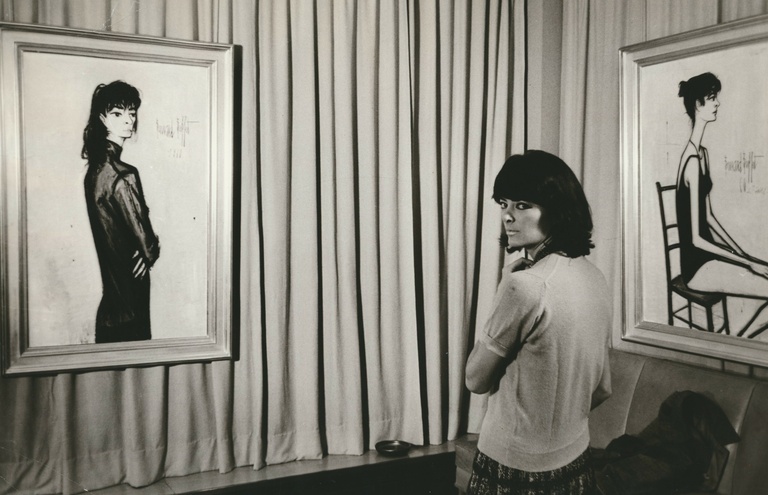
Annabel often posed for her husband. Sometimes, she took on feminine roles...
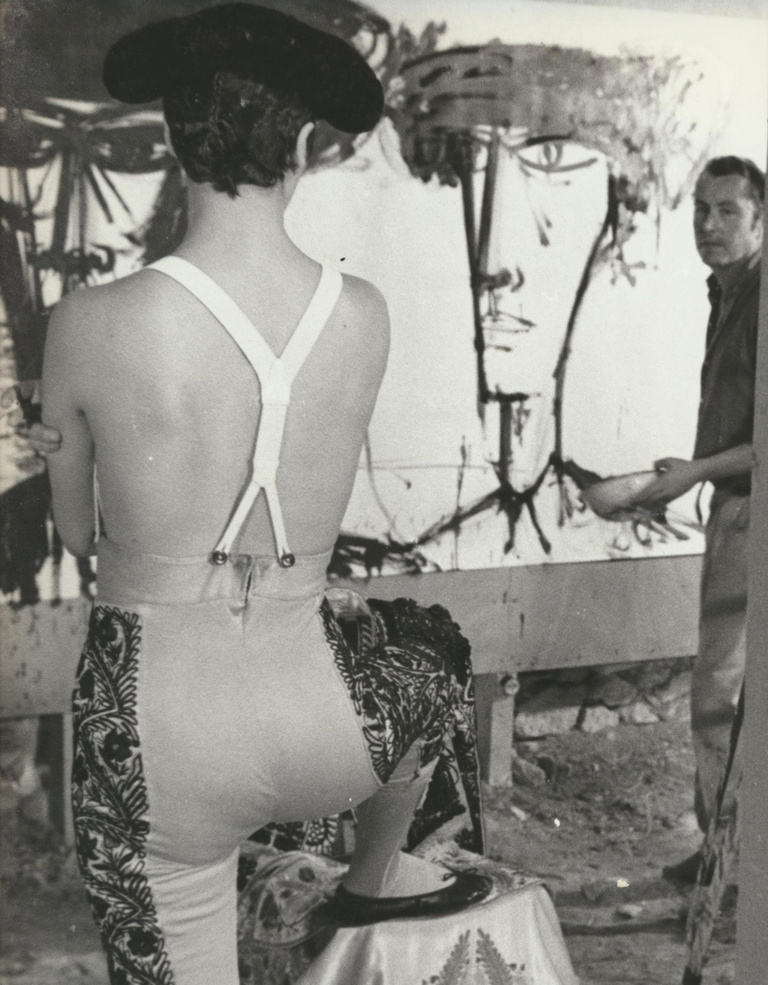
... and at others times, masculine ones.
1970s
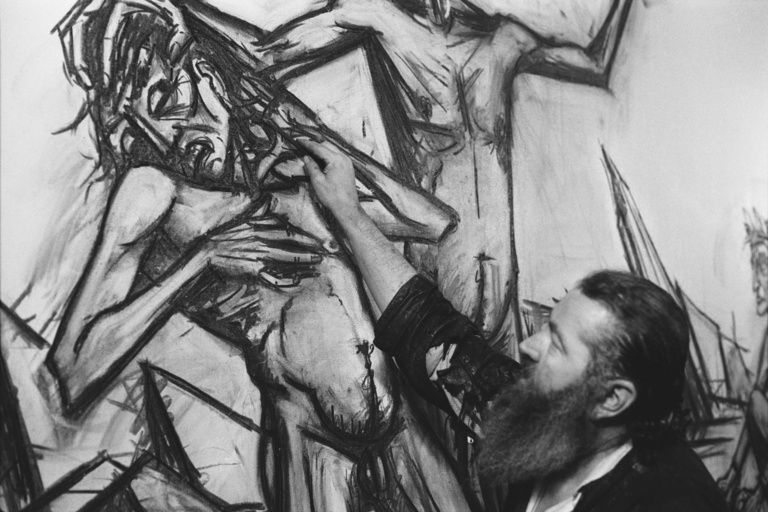
The 1970s were a period of institutional recognition for Bernard Buffet.
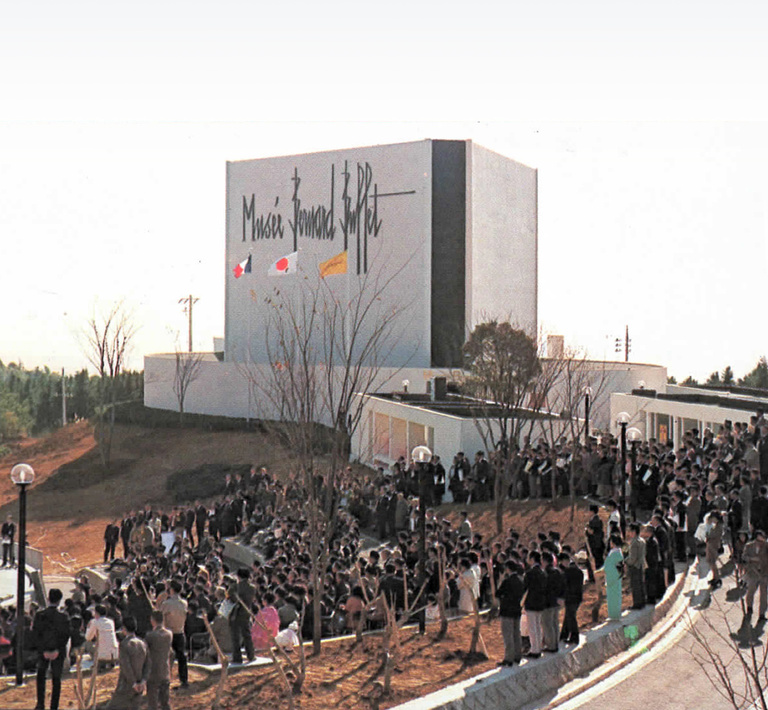
In 1973, the Bernard Buffet Museum was inaugurated in Japan, in the Shizuoka region, south of Tokyo. From that point on, the painter regarded Japan as his second country.
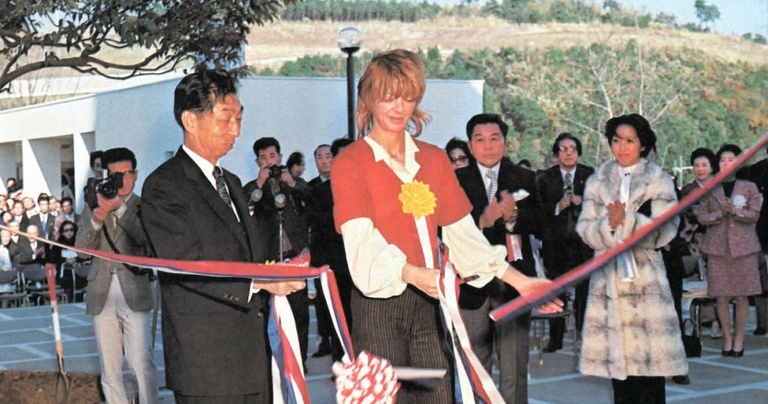
A very shy man, Bernard Buffet chose not to attend the museum's opening ceremony and asked Annabel to represent him instead.
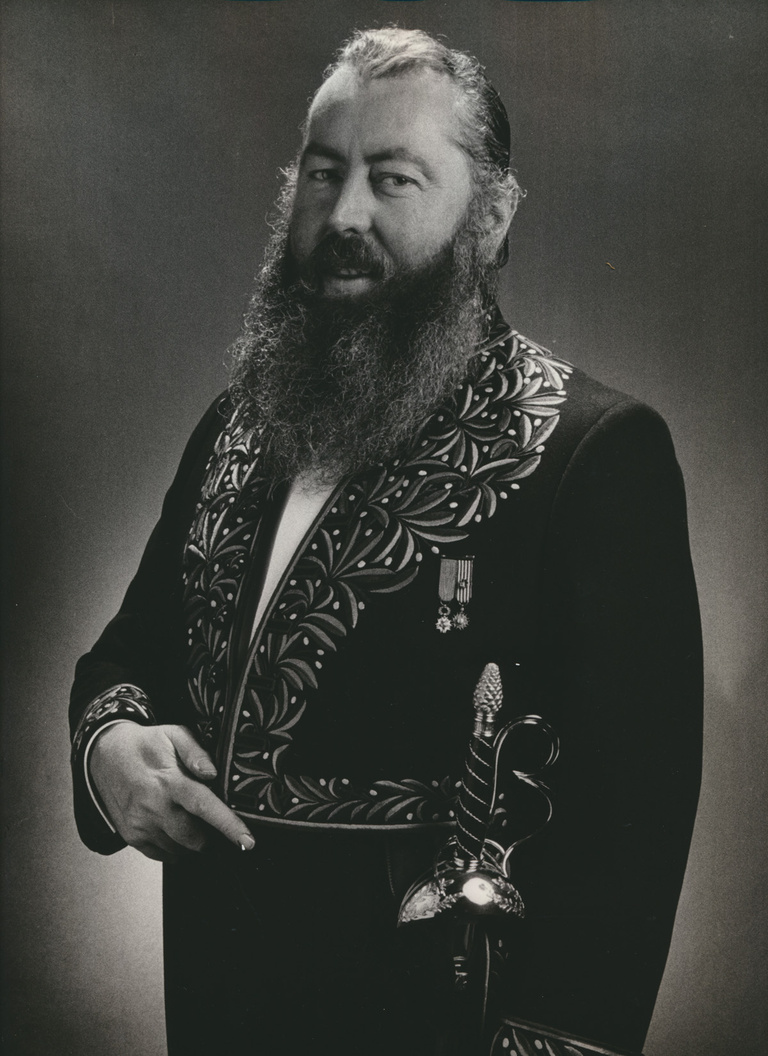
In 1974, Bernard Buffet was made a member of the Académie des Beaux-Arts.
1980s
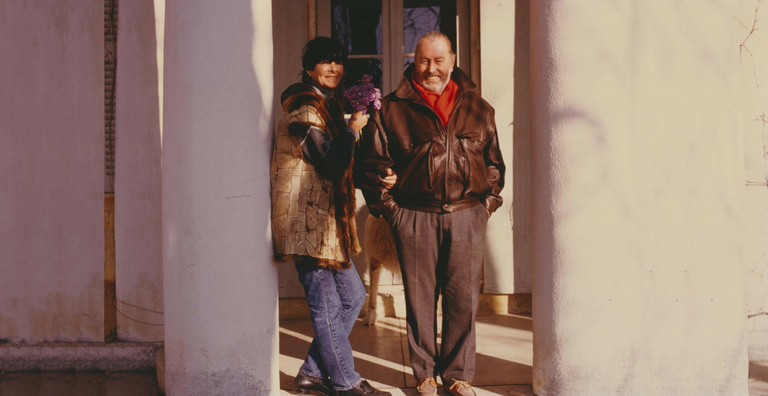
The early 1980s was a time of introspection for Bernard and Annabel.
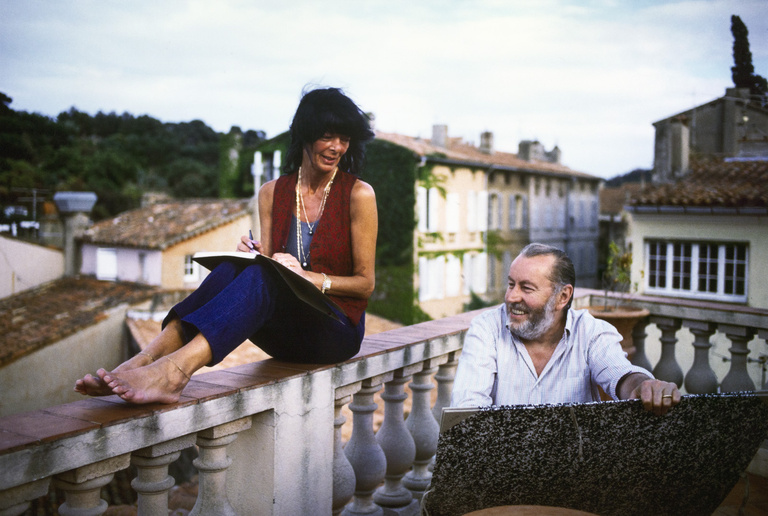
After struggling for years with their addiction to alcohol, Bernard and Annabel decided in 1986 to settle in Tourtour, in Provence. This change represented a fresh start, marking the beginning of a happier period in their lives.
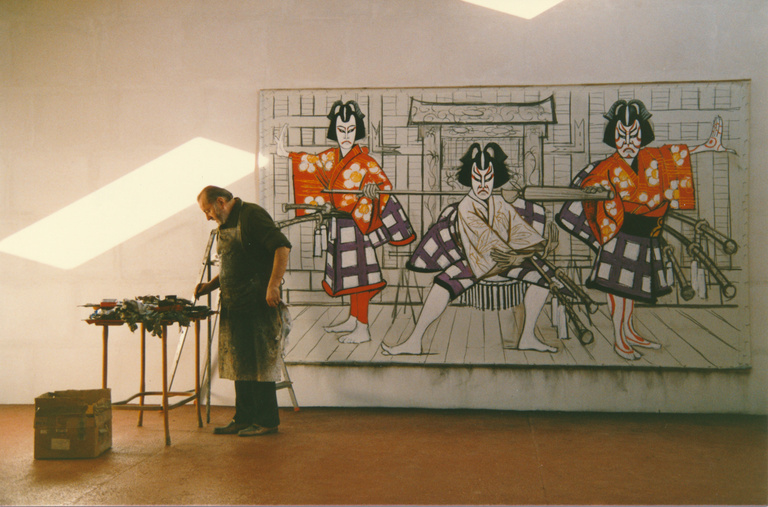
Bernard Buffet visited Japan twice in the 1980s. In 1980 and 1987, he paid tribute to this country in his annual themes.
1990s
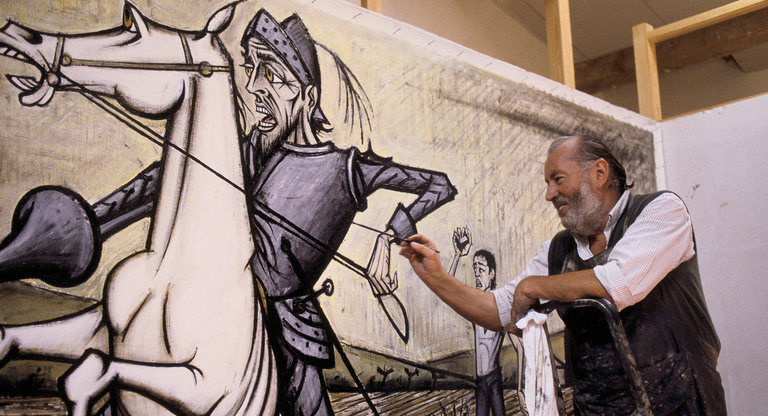
The 1990s were marked by significant exhibitions of Bernard Buffet's work, particularly in Asia and Russia.
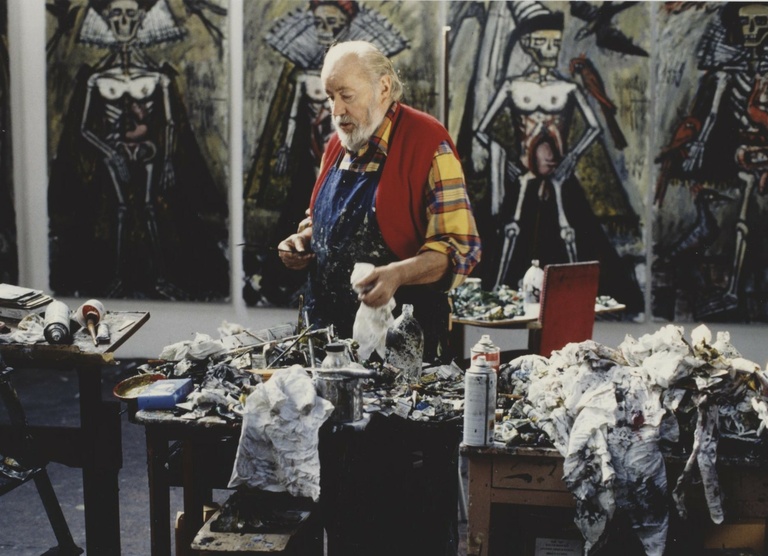
At the end of the 1990s, Bernard Buffet learned that he had Parkinson's disease, a condition that gradually impaired his ability to paint. He persisted in creating as long as he could, but, unable to imagine a life without artistic creation, he took his own life on 4 October 1999, leaving behind a final series of works focused on death.
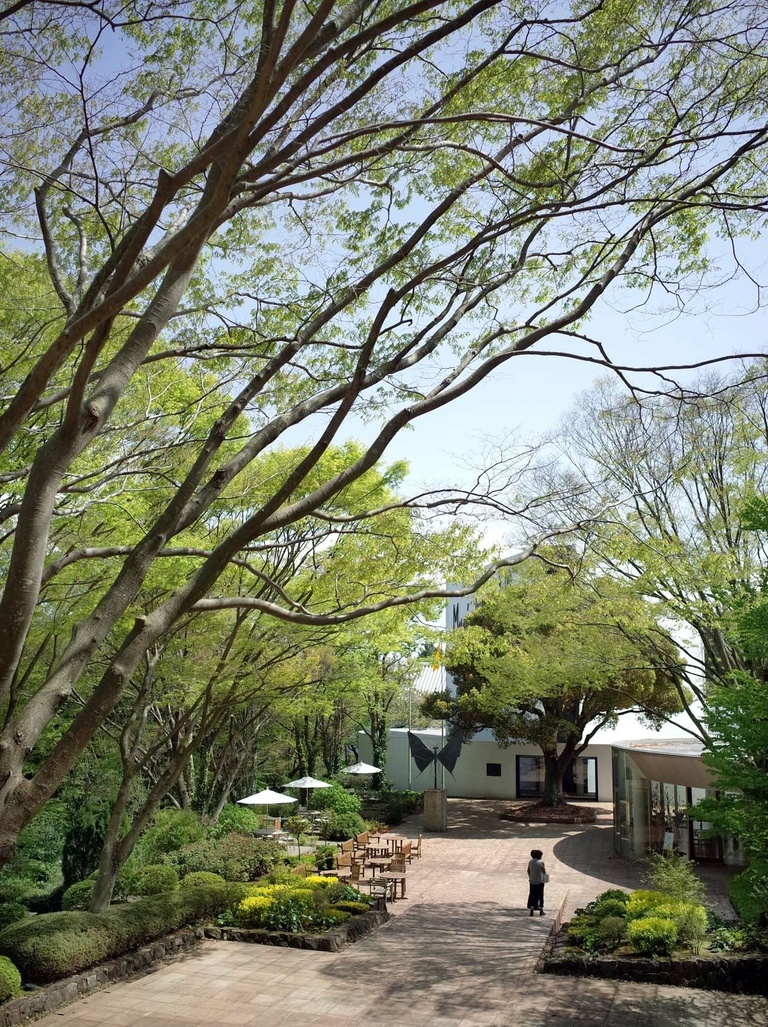
In the spring of 2000, Annabel scattered Bernard's ashes in the gardens of the Bernard Buffet Museum, thus fulfilling his one final wish.
